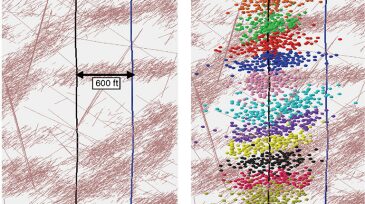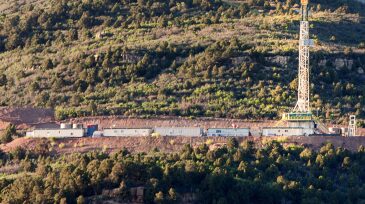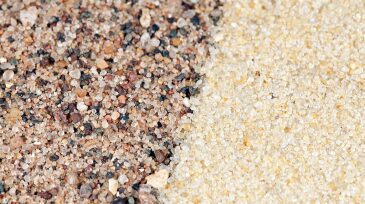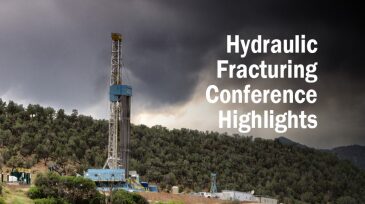Fracturing/pressure pumping
Major increases in hydrocarbon production require both incremental and revolutionary technologies, industry leaders said during the SPE Hydraulic Fracturing Technology Conference.
Technology developers expect the tight-oil industry to give lightweight proppants another look after the Permian Basin’s biggest operator becomes an adopter.
In this third work in a series, the authors conduct transfer-learning validation with a robust real-field data set for hydraulic fracturing design.
-
Recent studies have found that the viscosities of borate gels at actual downhole pressure conditions may be 80% less than those from standard high-pressure/high-temperature rheometer measurement (which uses 400-psi top pressure).
-
This paper examines the chemistry of developing seawater-based fracturing fluids using two types of polymers as gelling agents and compares results to existing fresh-water-based-fracturing-fluid data under different conditions.
-
This paper presents the results of a comprehensive multiphase-flow study that investigated the relationship between the principal stresses and lateral direction in hydraulically fractured horizontal wells.
-
The objective of this study is to validate the concept of using a seismically derived discrete fracture network (DFN) calibrated with borehole measurements, for complex-hydraulic-fracture modeling.
-
Always recorded but almost never used, the water hammer signal could offer completions engineers another set of insightful data if petroleum engineers can crack its code.
-
PDC’s president and CEO describes the company’s management strategy for its hydraulic fracturing operations in the Wattenberg Field and the Delaware Basin.
-
Permian Basin producer Callon Petroleum is attributing its data-driven approach to a routine completions practice to improved proppant placement and higher oil production.
-
Battlecat Oil & Gas ratcheted up on data, analysis, and technology to successfully develop unproven shale acreage.
-
Although Saudi Arabia has plenty of sand, it took some ingenuity by Saudi Aramco and Schlumberger to figure out how to use it effectively as proppant.
-
In the keynote speech at the SPE Hydraulic Fracturing Technology Conference, author and founder of the Center for Industrial Progress Alex Epstein explained the moral case for fossil fuels.













